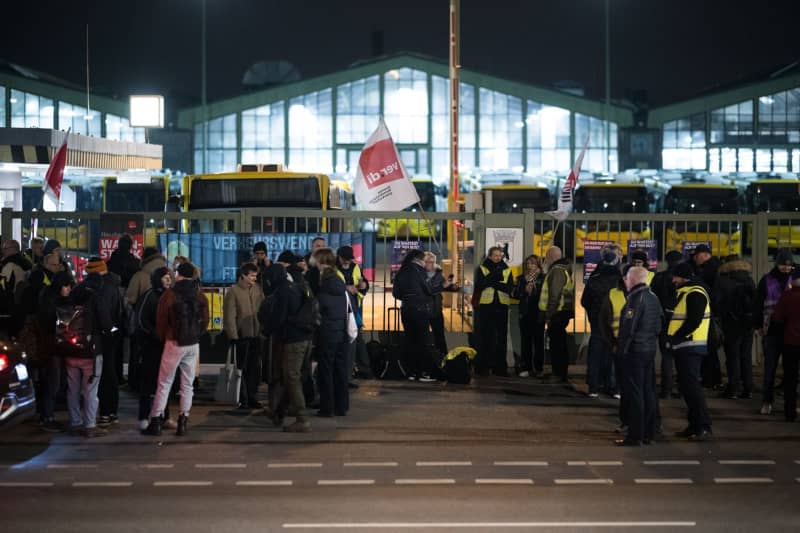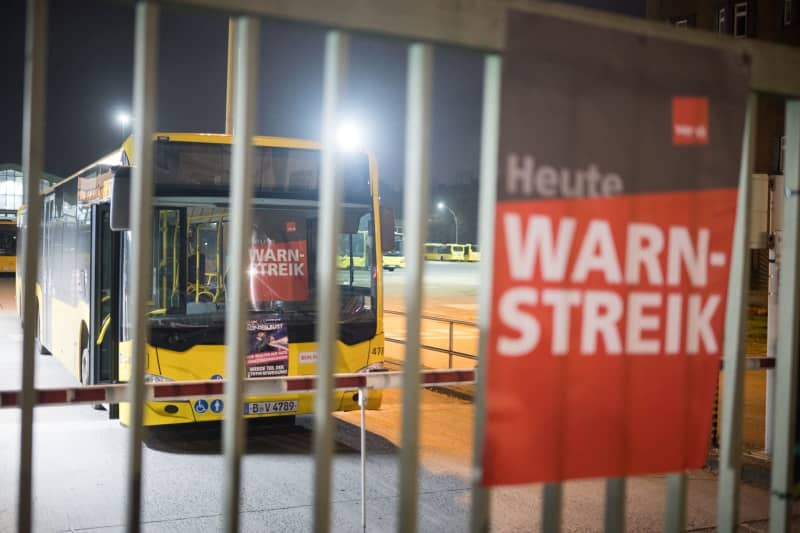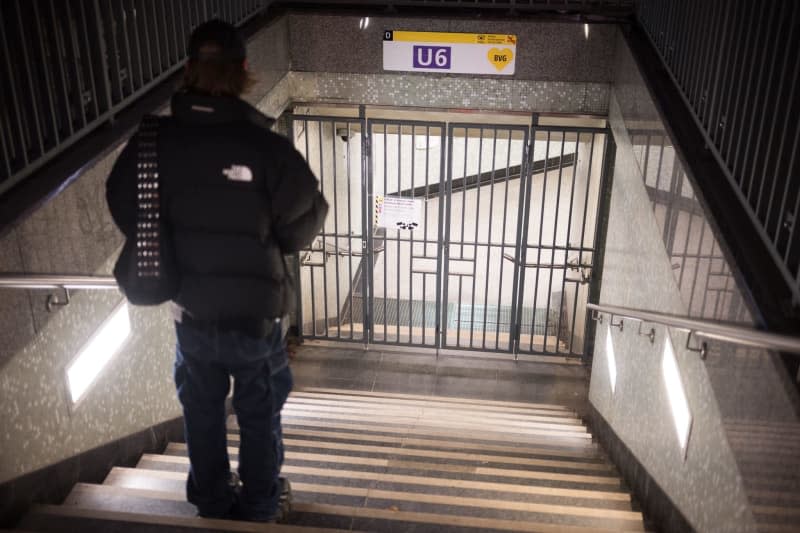Commuters held up in 80 German cities amid public transport strike

- Oops!Something went wrong.Please try again later.
Commuters in Germany switched to cars or bikes to reach their workplaces on Friday morning as local public transit workers in around 80 German cities and towns stage a day-long strike in the latest show of labour unrest in Europe's largest economy.
Passengers faced reduced or no service on bus, tram and underground lines in cities across Germany, with the exception of Bavaria.
Travellers in North Rhine-Westphalia are worst affected, with around a third of the 90,000 workers called out to strike nationwide based in Germany's most populous state.
The strike in the western state began as planned with the start of the shift, usually between 3 am (0200 GMT) and 4 am, Peter Büddicker, a Verdi union representative in the state told dpa in the morning.
He said the level of strike participation was high.
Similar reports came in from other states including Brandenburg, Lower Saxony, Saxony and Saarland.
The industrial action comes a day after airport security staff walked off their jobs at 11 German airports. Last week, striking train drivers brought the national rail system to a near-standstill for five days.
Wage negotiations in public transport are currently taking place in nearly all of Germany's 16 states.
The Verdi trade union is in collective bargaining talks with transit leaders on behalf of about 90,000 workers at some 130 municipal transit agencies. The talks are taking place simultaneously, and no deal was reached during negotiations last weekend.
Demands from transit workers in different regions vary significantly.
In Berlin, workers at the transit agency BVG are demanding more holiday time and longer breaks. Workers in some other areas, such as the surrounding eastern state of Brandenburg, are demanding pay increases of 20%.
In Hamburg, negotiations are under way for a new in-house collective agreement for transport companies. Travellers in the northern city were also contending with a strike among ground-handling staff at Hamburg Airport on Friday.
The strikes are being supported by the climate group Fridays for Future, which is staging regional protests and rallies to demand better working conditions and improvements in public transport to make the job more appealing.
Fridays for Future activist Luisa Neubauer asked who would want to enter the profession if conditions do not improve.
"Of course, as a climate movement, we can fight to ensure that climate targets in transport can be met and emissions finally fall," Neubauer said during a visit to a Verdi trade union picket line in Berlin.
"But that won't work in the end if we ignore the conditions under which people work."
A Green Party lawmaker expressed support for the strike, describing public transport staff as "everyday climate heroes."
"Every day, their work ensures that millions of people in Germany can travel in a climate-friendly way and at affordable prices," Green Party parliamentary group leader Katharina Dröge told dpa. "That's why it's important to fight for good working conditions."
Their comments come as a study shows 40% of bus and tram drivers in Germany are over 55 years old.
The data on 2022, provided by the Federal Statistics Office (Destatis), shows the average age of transport sector staff is significantly higher than for all employees in Germany where 26% are over 55.
Although the number of drivers has risen by just under 6% to 145,000 between 2021 and 2022, "a significant number of them are likely to retire from the workforce in the next few years," which could lead to additional staff shortages.
Women are also significantly under-represented among bus and tram drivers with a share of just 15%, according to Destatis. The proportion of women in the general German workforce was 47% in 2022.
Meanwhile, Destatis said just under a quarter of bus and tram drivers in Germany were foreign nationals, compared to 14% of the workforce as a whole.



